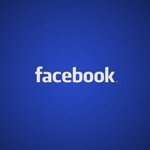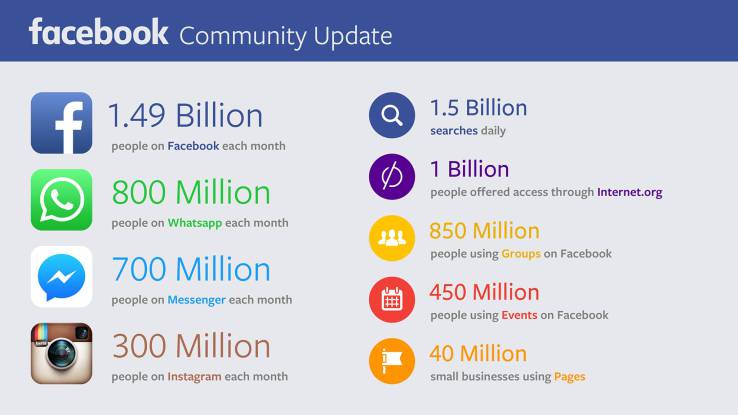 Nothing is perfect. Just like anything created by man and anything we see, the world is just full of flaws. And the same goes to the tech industry that shines when electricity, internet and mobile consumption become cheaper and affordable.
Nothing is perfect. Just like anything created by man and anything we see, the world is just full of flaws. And the same goes to the tech industry that shines when electricity, internet and mobile consumption become cheaper and affordable.
There are many tech companies that thrive and came to success in just a small amount of time. A very small number succeeded in getting the world's attention and became companies that control more than a single area, and only a very of them actually rule an industry by becoming a successful game-changer.
One of the companies that is able to go that extent is Facebook.
From Google, Microsoft, Apple and others. All have their own advantage and name. They're all game-changers and powerful in their own ways. But there is no tech company in the past few years that is executing so well in many areas at a single time beside Facebook.
The social media giant, first unleashed to the web as "thefacebook" in 2004, is already powerful on its own way. Many have doubt Facebook when it first went public, but when it moves from product development to business management to public relations, Facebook's performance excelled even the older more mature and the more powerful competitors, beating them in their own business.
What Facebook has in advantage is that its users are addicted. With more than a billion of users registered, Facebook has reached one out of every seven people in the world. That many people checks Facebook everyday using their computers, laptops, tablets, mobile phones and other platform available. And all of them are spending even more time on the social network that they actually need.
As more users are registering, on its Q2 earning call, it's monthly active user increased 13 percent from 2014 on the same period, adding 173 million users in a year.
Despite its stock sinking, Q2 2015 is an exiting moment for Facebook. The company booked $4.04 billion in revenue and $0.50 earnings per share (39 percent rise). Facebook has 1.49 billion monthly users, up 3.47 percent quarter over quarter, which was a bit slower than Q1's 3.6 percent growth. The results were way beyond expectations.
Facebook's quick growth spurt did decrease if compared to its early age. The only reason is that the number of internet users aren't increasing as fast as Facebook. This has caught much of its attention, and for that its Internet.org initiative is a plan to backup the company when internet users are saturated.
Founder and CEO of Facebook Mark Zuckerberg portrays Internet.org, the non-profit organization Facebook funded, as a way to bring the next billion people to the internet.
As more people are using the internet, more users will be using Facebook. And as more users are using Facebook, the more income it will have.
Targeting Mobile
Traditional computers has had their time. Current days of the internet is on and through mobile. Facebook acknowledged this and sees this as a way to grow.
Before its awaited IPO, investors were worried that Facebook won't thrive this growing era, and that was one of the reasons why its shares fell to an amount that people predicted to be the end its reign. At that time, Facebook had no mobile advertising business nor strategy. But it moved quickly to embrace mobile, and that very year, it started releasing mobile ads.
With its business management, Facebook has grown its mobile advertising performing upwards to where it always wanted, claiming many other businesses' market that had slower starts, including Google's.
As its way to aim for more mobile revenue, it's not solely depending on its own services to thrive. Facebook has many other services/products waiting inline, waiting to be tapped. And for a reason, that many services/products do come along with Facebook's core business in a harmony.
From its Search feature, its very own Messenger, WhatsApp, Instagram and Oculus that the company acquired, to News Feed. With the many diversity that responds well to its core service, and by making some of its products their own brand rather than piggybacking Facebook's, the social media that was once seen to appeal only younger generations, became more appealing to those of other generations as well.
And with all that, it's not at all stopping. It's also moving into hardware business by designing its own data centers and put them under an open source license. The company is also releasing its own beacons to help promote businesses, and itself to more wandering people.
Related: Facebook, The 'Mobile First Company': More Income, More Expense

Becoming an Era
Social is our way of relating human society to its modes of organization and communication. With the many technologies that now aids this information transaction and behavior, Facebook is using human's basic needs of socialization as a way of business. And as communication becomes easier by the day and tech companies that aids in creating this easier means of communication, Facebook is creating a social era where it is already sitting at the tip, getting others' gain to benefit its own.
Competitors like Apple for example, has revolutionized technology more than any others since the rise of PC, especially with the iPods and iPhones. But the company has yet to tap into social. Apple is producing more hardware with a pricey tag which people actually buy, but its products without their former version's good history on the market, are having slow starts. Apple Watch is a good example of this.
Google is bigger and more mature than Facebook in many ways. Its number of users, the popularity of its products and influence is significantly higher in terms of ability to get more revenue. As a younger company seeking its way through, Facebook is entering Google's territory in more than many ways. And at some point, it succeeded where Google failed. Google+ was Google's way to stop Facebook's growth, but it became the company's failing ambition as it never got close to even where Facebook's shadow was. Google also has yet to maximize mobile advertising, the place Facebook already excels at. Furthermore, its video feature is in close competition with Google's YouTube.
Microsoft that was once at the peak of the software tech food chain has had its time. When it was conquering the PC market, Microsoft was ruling the industry by a significant margin that nothing ever came close. But as mobile devices ate away its market, Microsoft led a slow growth. It has yet to show back its power but its more of a defense player protecting its brand rather than playing offence attacking others.
Amazon is another juggernaut on the internet. The largest online e-commerce is mature and well-managed to an extent that its computing services made billions every year. But its disadvantages if compared to Facebook is its ability to pronounce itself worldwide. The company is not having a great performance around the world like Facebook, and its profit is not as consistent as the social giant.
As mentioned earlier, nothing is created without flaws. In just a small amount of time, Facebook may have the resources that others have envied, and more power than most businesses can manage to get during their lifetime. But the higher it goes, the more it will face crosswinds, and the more it has to struggle to keep its position while others are seeking its weaknesses from every angle.
No business can last forever, especially if competitors are partnering for its defeat. While a thousand ants may not bring an elephant down, there are many giant companies out there seeking their way up trying to get a piece of the pie. But for Facebook, it will still be up there for many moments to come.